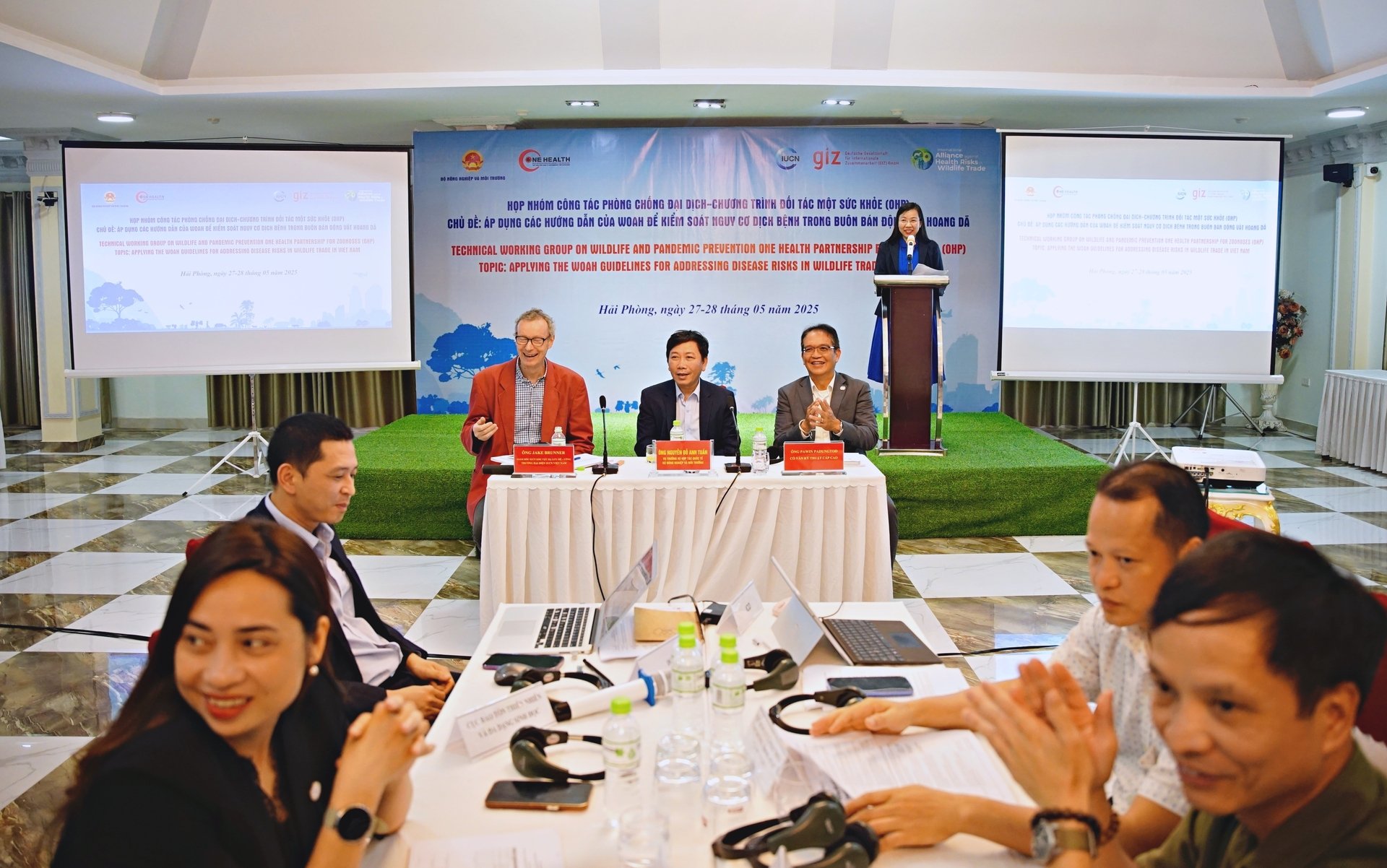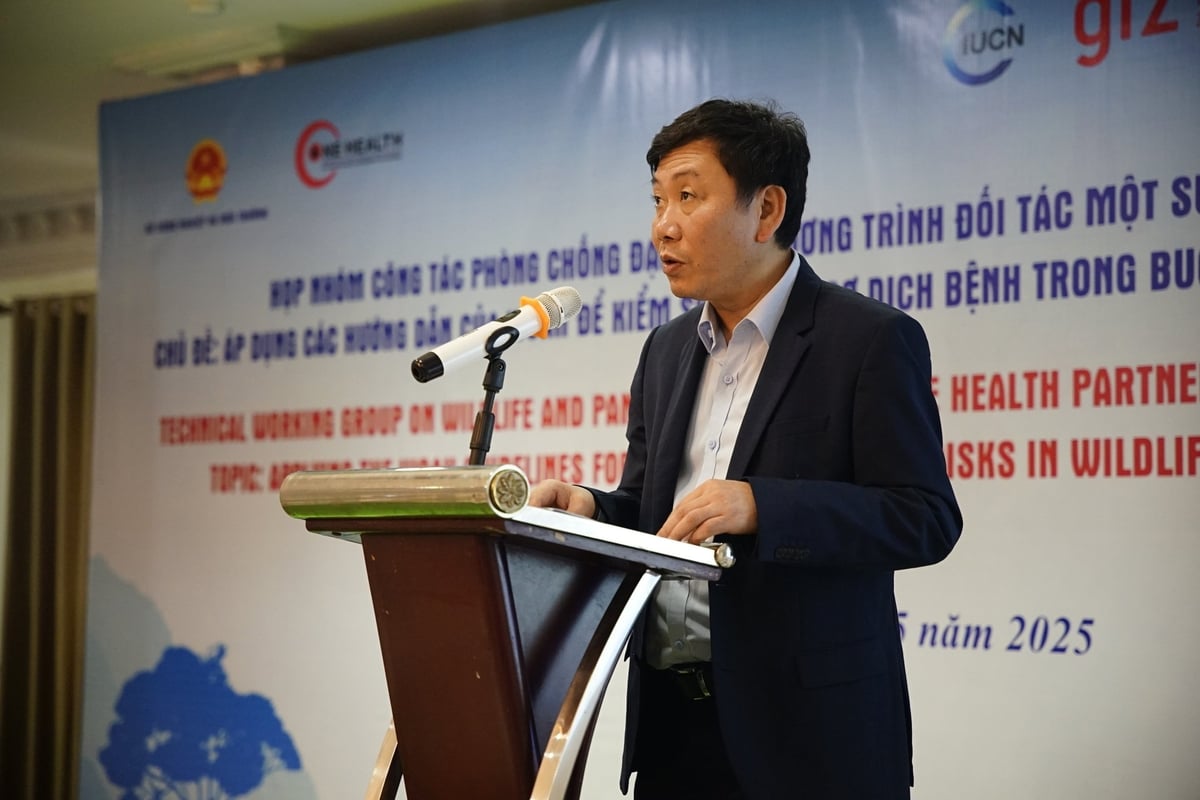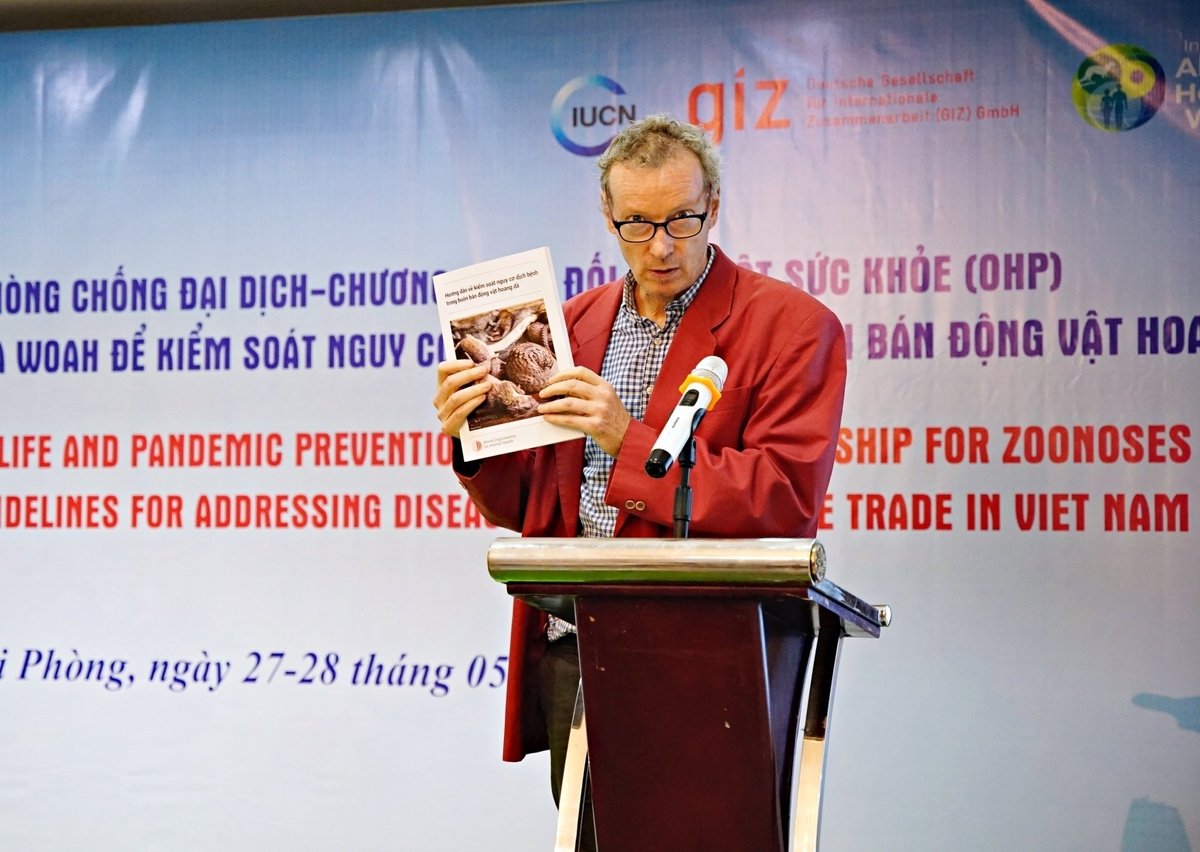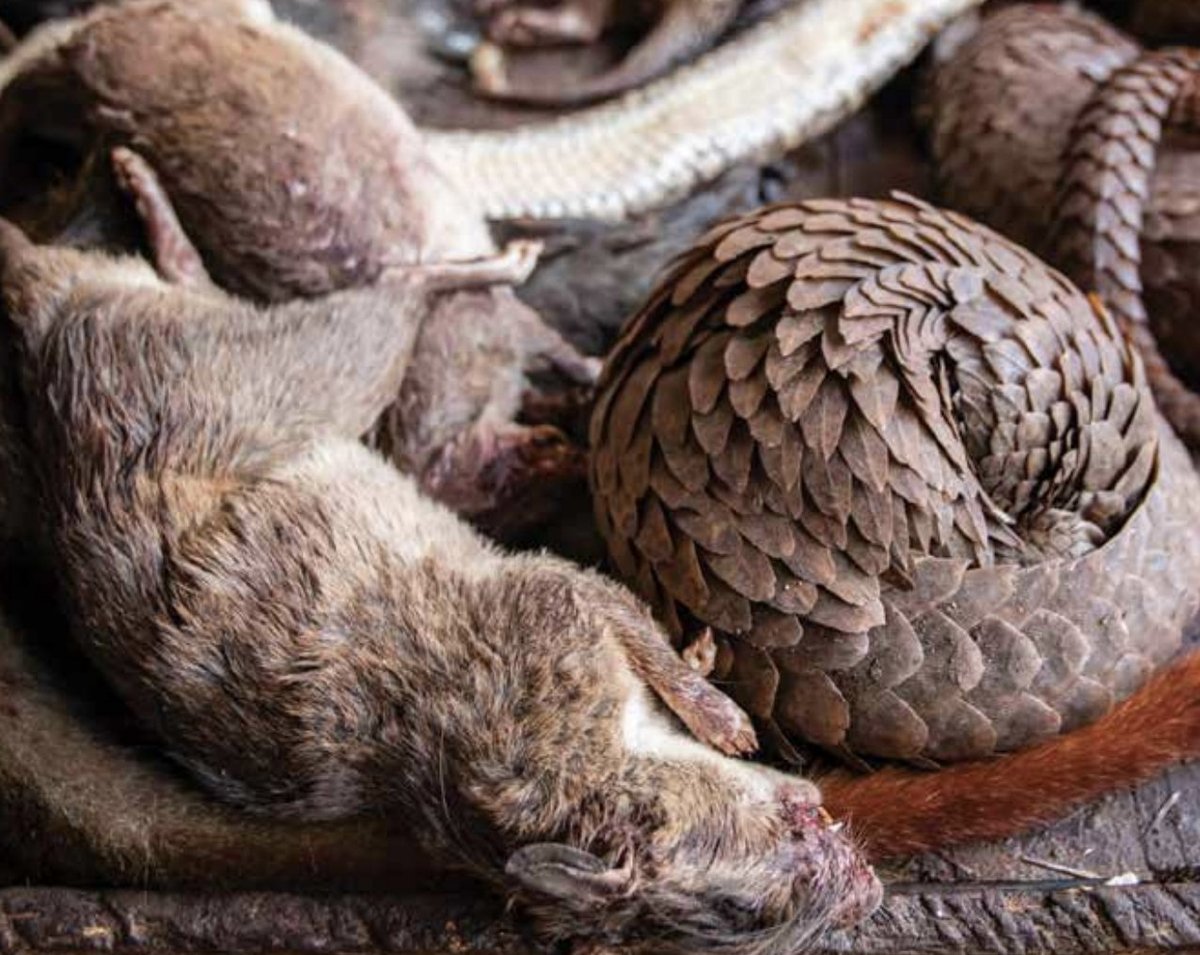December 6, 2025 | 05:24 GMT +7
December 6, 2025 | 05:24 GMT +7
Hotline: 0913.378.918
December 6, 2025 | 05:24 GMT +7
Hotline: 0913.378.918

Representatives from IUCN, the Department of International Cooperation (Ministry of Agriculture and Environment), and FAO Vietnam co-chaired the meeting. Photo: Linh Linh.
On May 27–28, the Pandemic Prevention Working Group under the One Health Partnership Framework (OHP) held a workshop on disease risk management in wildlife trade, attended by multiple domestic agencies and international partners.
The meeting focused on applying the World Organisation for Animal Health (WOAH) practical guidelines to Vietnam’s disease risk management system.
Dr. Nguyen Do Anh Tuan, General Director of the International Cooperation Department (Ministry of Agriculture and Environment), the coordinating body for the One Health Partnership Framework in Vietnam, emphasized the urgent need to tightly control contact points within the wildlife trade chain, as most zoonotic diseases emerge from these interactions.
Vietnam, with its rich biodiversity, is a hotspot for wildlife trade activities and consequently faces significant disease emergence risks if timely assessment and intervention measures are not implemented.

Dr. Nguyen Do Anh Tuan, Director General of the Department of International Cooperation (Ministry of Agriculture and Environment), speaks at the meeting. Photo: Linh Linh.
According to representatives from the Ministry of Agriculture and Environment, the WOAH guidelines provide a comprehensive risk analysis framework, encompassing hazard identification, exposure assessment, risk characterization, risk management, and risk communication. This tool is crucial for analyzing risks throughout the entire chain, from extraction, transportation, and consumption to handling confiscated wildlife. Priority actions should focus on hotspots, such as live animal markets, transit points, and facilities with poor hygiene standards.

Jake Brunner, Head of the International Union for Conservation of Nature (IUCN) Lower Mekong Subregion, presents guidelines for disease risk management in wildlife trade. Photo: Linh Linh.
Jake Brunner, Head of the International Union for Conservation of Nature (IUCN) Lower Mekong Subregion, emphasized the purpose of the workshop as a demonstration of how guidelines published by the WOAH can effectively support comprehensive risk assessments. WOAH, an intergovernmental organization based in Paris, has developed a detailed wildlife health framework as part of its global mandate to enhance animal health.
He noted that several WOAH-affiliated animal health specialists had joined the event in Hai Phong, and expressed that the structured, systematic process provided by WOAH would help identify priority actions for zoonotic disease risk reduction. Brunner particularly highlighted the complexity arising when animals confiscated from the illegal wildlife trade are mixed with those from farms and other captive facilities, stressing the importance of addressing both legal and illegal trade since zoonotic pathogens make no distinction based on legality.
The workshop specifically concentrated on assessing disease transmission risks across the entire wildlife trade supply chain,from wildlife capture in forests, through transportation, confiscation, and transfer to rescue centers, rehabilitation, and potentially eventual release back into the wild.
According to IUCN, each of these stages represents critical points of contact between humans and animals experiencing stress or illness, underscoring clear zoonotic disease risks. Ultimately, he expressed the expectation that the outcomes of this workshop would directly inform and enhance the One Health Partnership’s new five-year masterplan, with the Wildlife and Pandemic Prevention Technical Working Group taking the lead in implementing targeted activities.

Inter-sectoral coordination among agriculture, environment, health, police, customs, and local authorities was identified as crucial to effectively control the wildlife trade supply chain. Photo: WOAH.
The working group recommended priority actions, including rapid amendments to existing regulations, updating biosecurity standards for captive breeding and slaughtering, and strengthening law enforcement in hotspots such as Nghe An, Dong Nai, and Quang Ninh provinces. Additionally, they called for international technical and financial support to pilot risk management models on the ground.
Through robust discussions, stakeholders aim to establish a practical risk management plan encompassing early warning systems, disease surveillance, and frontline training for quarantine, CDC personnel, and local veterinarians. Effective inter-sectoral collaboration between agriculture, environment, health, police, customs, and local authorities was reaffirmed as key to managing the wildlife trade and preventing zoonotic diseases.
At the meeting, Mr. Nguyen Manh Hiep, IUCN National Coordinator for Biodiversity, introduced the Nature for Health (N4H) project. This global initiative, founded by eight leading environmental and health organizations, aims to promote disease prevention through the One Health approach. With the mission of "preventing pandemics early," N4H seeks to build effective interdisciplinary interventions that link public health protection with nature conservation and address threats from climate change and ecological degradation.
Translated by Linh Linh

(VAN) As of 2025, the ASEAN region has a total of 69 ASEAN Heritage Parks recognized across its 10 member states. Among them, Viet Nam contributes 15 ASEAN Heritage Parks.

(VAN) Yok Don National Park has high biodiversity with numerous endemic plant and animal species, and it is also the only dipterocarp forest ecosystem conservation area in Viet Nam.

(VAN) Viet Nam and Brunei signed two important MOUs on fisheries and IUU, expanding cooperation in agriculture, the environment, and Halal exports, aiming to substantively implement joint projects.

(VAN) The Viet Nam Coconut Association worked with the International Finance Corporation (IFC) and businesses to promote the supply chain, enhance competitiveness, and develop the coconut industry sustainably.
![Hue aims for Net Zero: [2] Pioneering low-emission tourism](https://t.ex-cdn.com/nongnghiepmoitruong.vn/608w/files/huytd/2025/12/04/0633-dulichzero-4-095634_236-161125.jpg)
(VAN) The ancient capital of Hue has developed Net Zero tourism products and models, aiming to reduce carbon emissions and pioneer the establishment of Viet Nam's green tourism destination.

(VAN) C.P. Viet Nam has announced the successful completion of its goal to plant 1.5 million trees during the 2021-2025 period, a key milestone within company's long-term ESG strategy and its roadmap for emission reduction.

(VAN) This is an initiative of MAE aimed at creating a unified coordination mechanism to implement agricultural cooperation programs with developing countries.